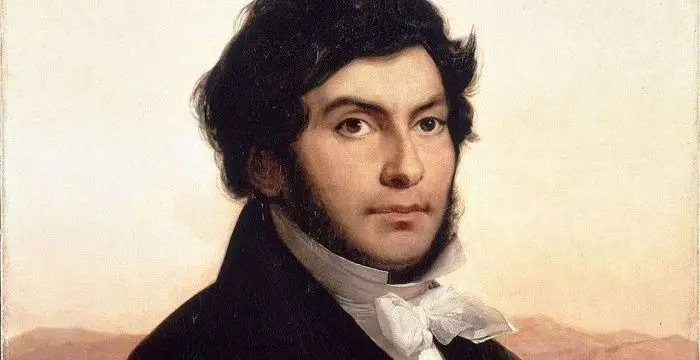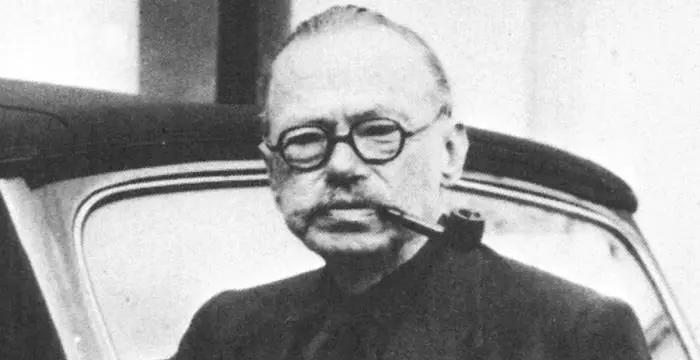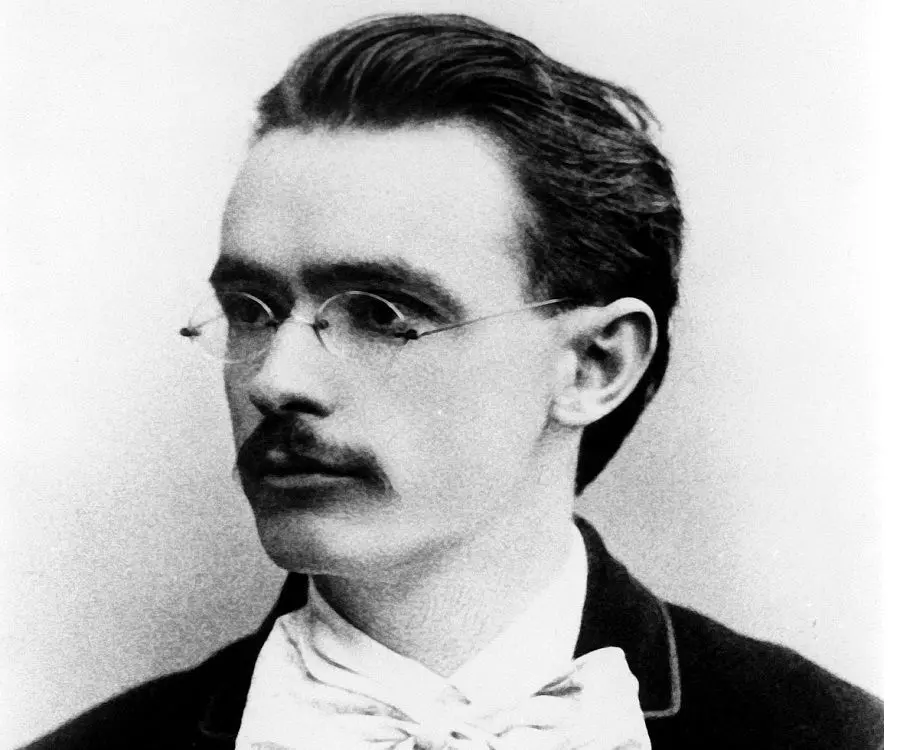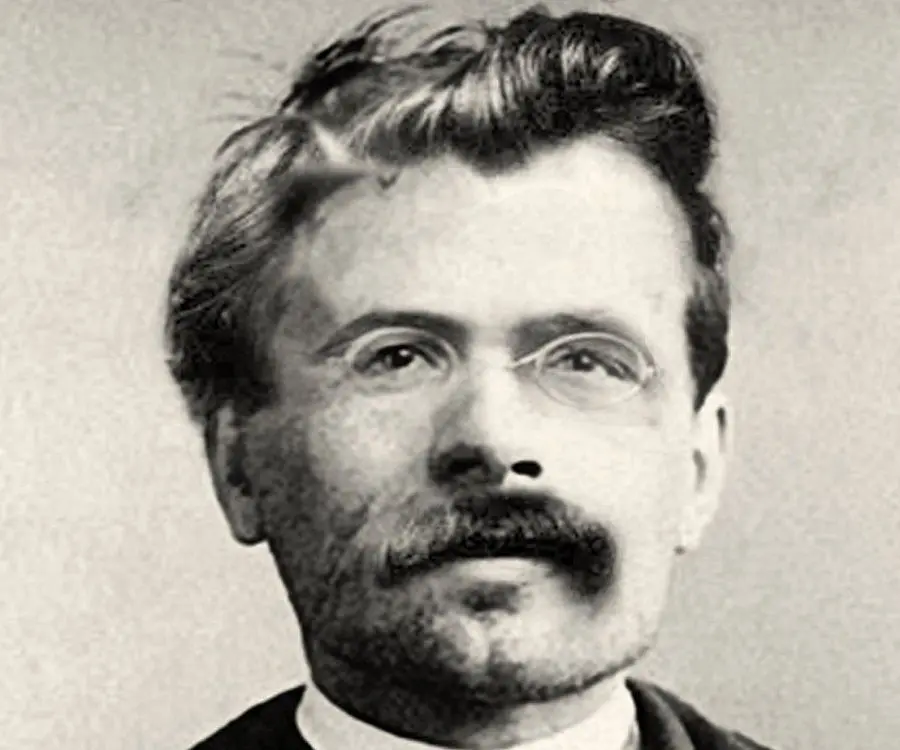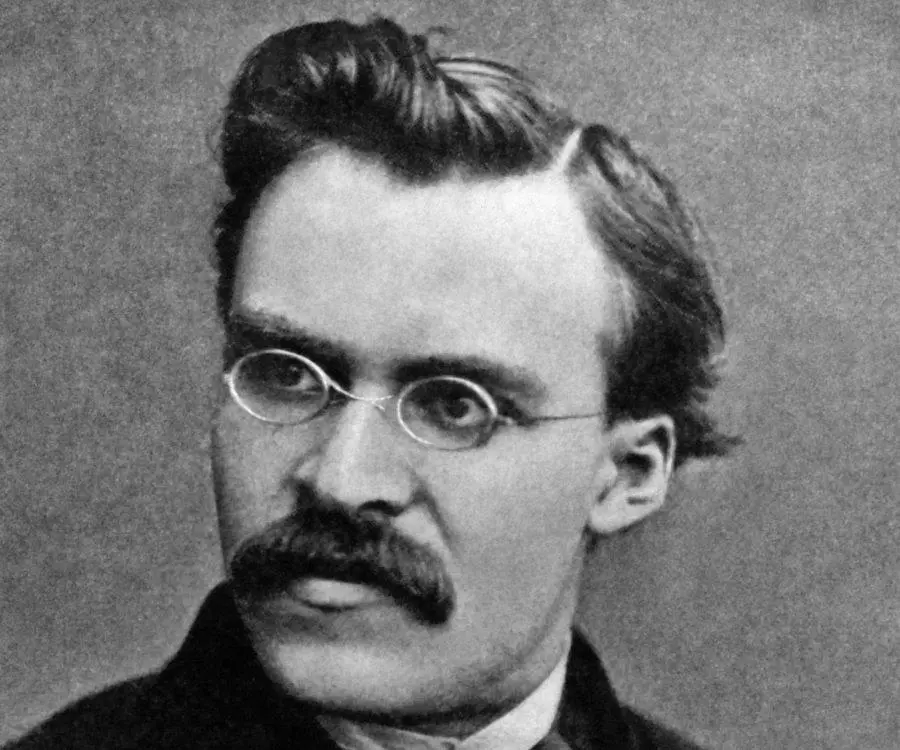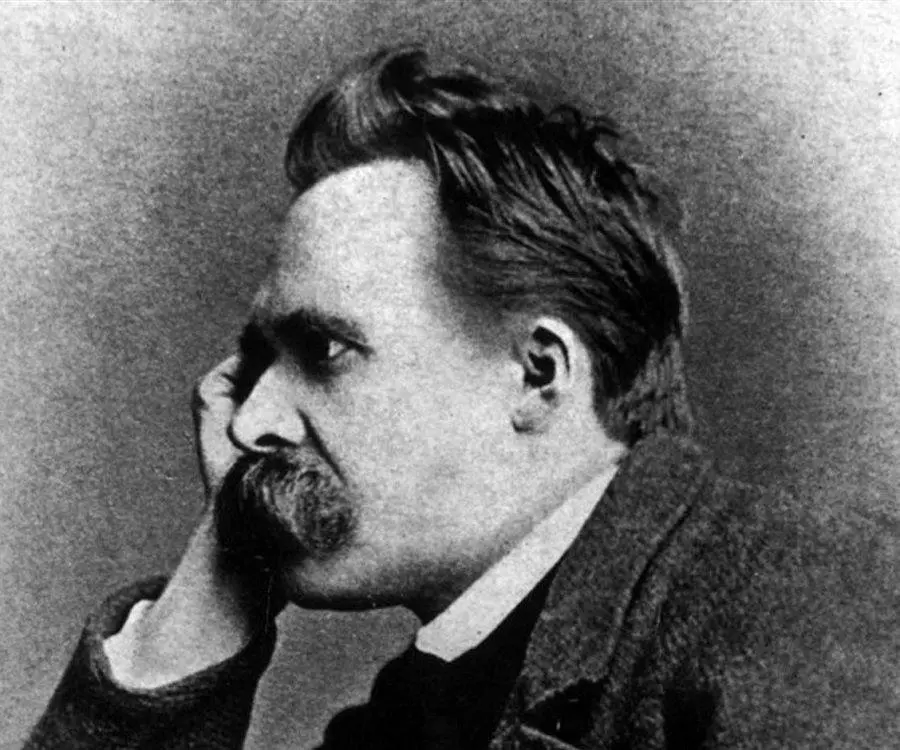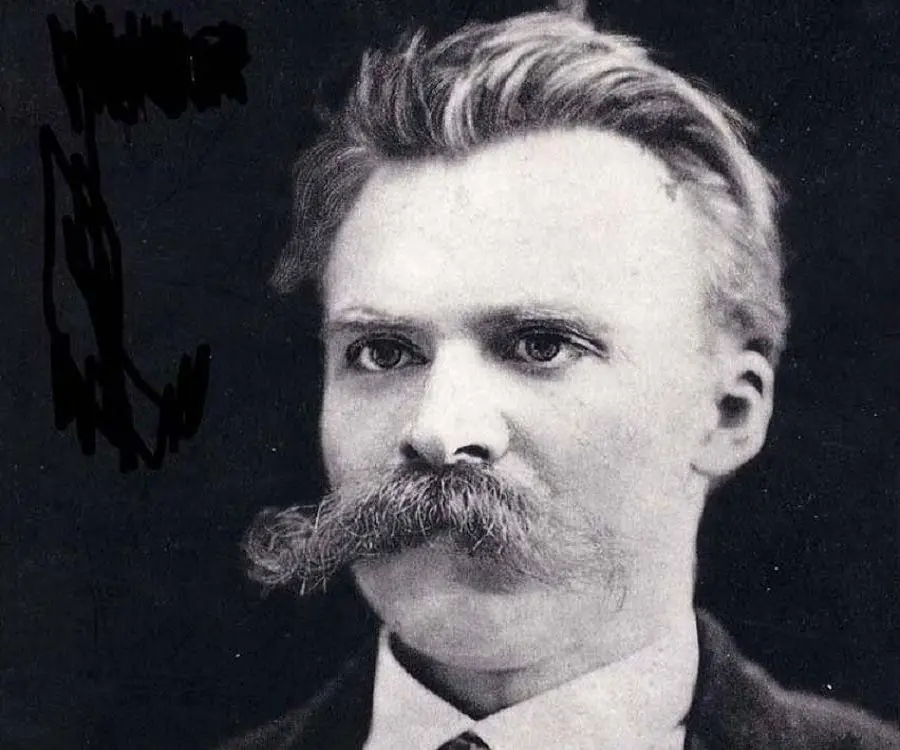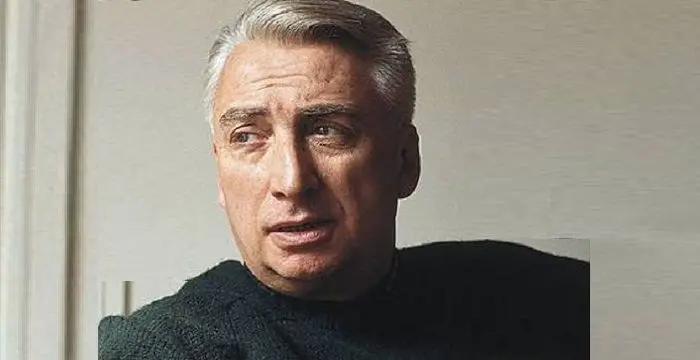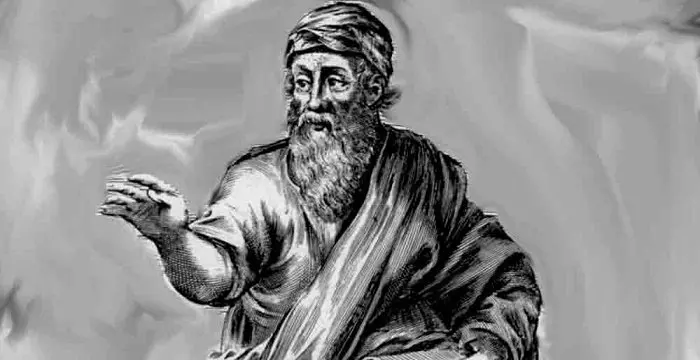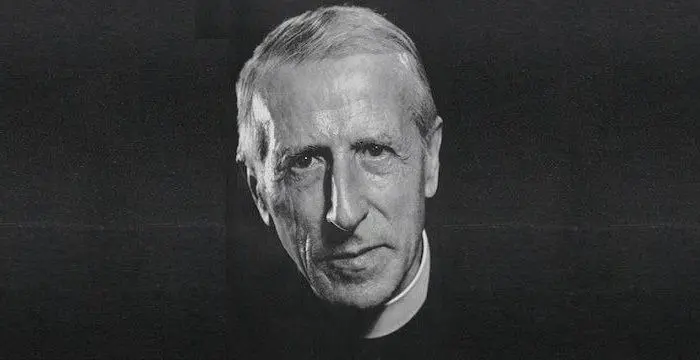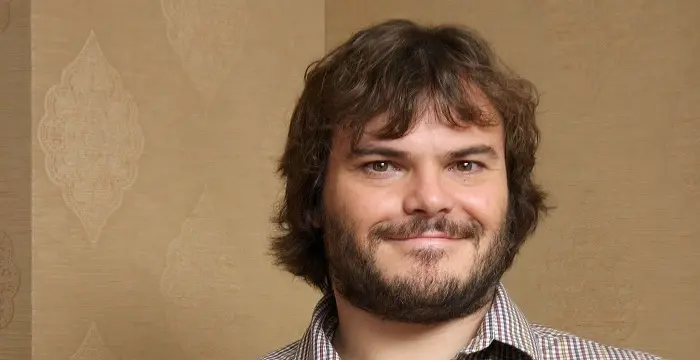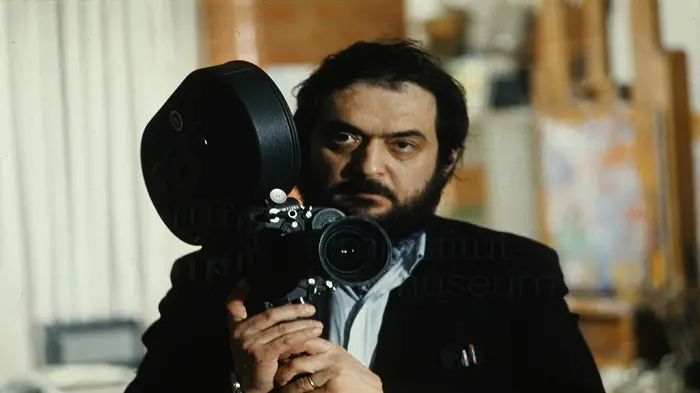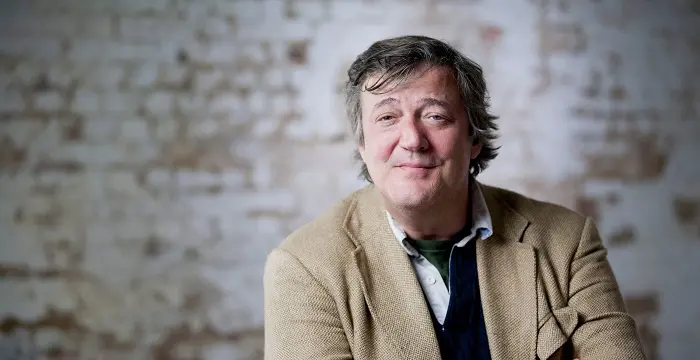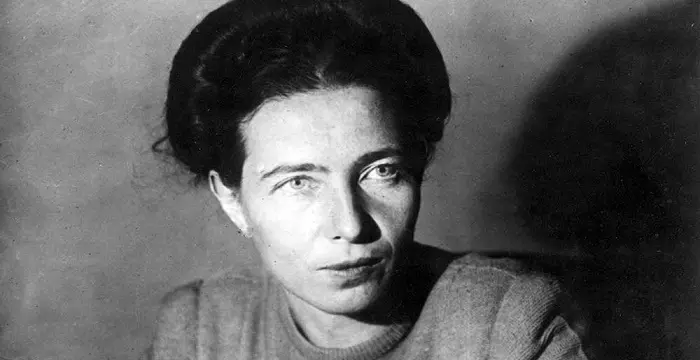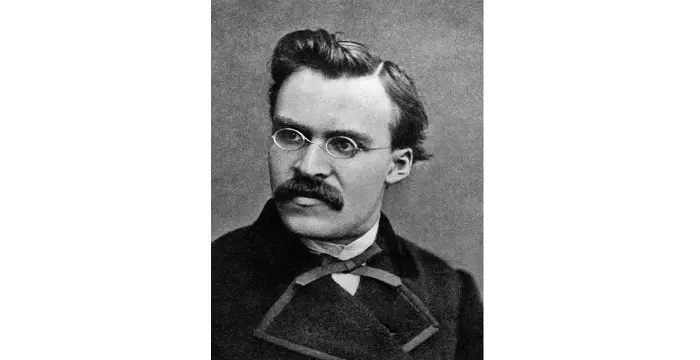
Friedrich Nietzsche - Philologist, Life Achievements and Facts
Friedrich Nietzsche's Personal Details
Friedrich Nietzsche was a famous 19th century German philosopher and philologist
| Information | Detail |
|---|---|
| Birthday | October 15, 1844 |
| Died on | August 25, 1900 |
| Nationality | German |
| Famous | Atheists, Intellectuals & Academics, Philosophers, INTJ, Philologist, Philosophers |
| Siblings | Elisabeth Förster-Nietzsche, Ludwig Joseph Nietzsche |
| Known as | Friedrich Wilhelm Nietzsche |
| Universities |
|
| Birth Place | Röcken-bei-Lützen, Kingdom of Prussia |
| Religion | Lutheran |
| Gender | Male |
| Father | Carl Ludwig Nietzsche |
| Mother | Franziska Oehler |
| Sun Sign | Libra |
| Born in | Röcken-bei-Lützen, Kingdom of Prussia |
| Famous as | Philosopher and Philologist |
| Died at Age | 55 |
// Famous Philologist
Jean-François Champollion
Jean-François Champollion is best remembered till date for deciphering the Egyptian hieroglyphs and Rosette Stone. This biography provides detailed information about his childhood, life, achievements, works & timeline
V. Gordon Childe
Vere Gordon Childe was an Australian historian, linguist and archaeologist. This biography of Vere Gordon Childe provides detailed information about his childhood, life, achievements, works & timeline.
Friedrich Nietzsche's photo
Who is Friedrich Nietzsche?
Friedrich Nietzsche was a famous 19th century German philosopher and philologist known for his critical texts on religion, morality, contemporary culture, philosophy and science. He was widely known for his ideas like death of God, perspectivism, the Übermensch, the eternal recurrence, and the will to power. He started his career as a classical philologist and at the age of 24 years was the youngest individual to hold the Chair of Classical Philology at the University of Basel. His writings mostly remained controversial and were often criticized for their anti-Christian faith. His work was later recognized and considered as carrying great personality development elements. It was said that German soldiers used to get a copy of Thus Spoke Zarathustra during World War I for inspiring themselves. Famous political leaders like Theodore Roosevelt, Adolf Hitler, Mussolini, Charles de Gaulle and Richard Nixon read his writings and were influenced by his ideas. His writings also influenced many profound thinkers of 20th century including Martin Heidegger, Jean-Paul Sartre, Leo Strauss, Albert Camus, Michel Foucault, Jacques Derrida, and Gilles Deleuze.
// Famous Philosophers
Roland Barthes
Roland Barthes was a French literary theorist, critic and semiotician. This biography profiles his childhood, life, works, achievements and timeline.
Pythagoras
Pythagoras of Samos was a Greek mathematician and philosopher. Read on to learn more about Pythagoras’s profile, childhood, life and timeline.
Pierre Teilhard de Chardin
Pierre Teilhard de Chardin was a famous French philosopher and a priest who was also known for his controversial writings. Read more about the life and works of this philosopher in the following article.
Childhood & Early Years
Friedrich Nietzsche was born on 15 October 1844, in a small town called Röcken, located near Leipzig, in the Prussian Province of Saxony. His father, Carl Ludwig Nietzsche, was a Lutheran pastor in Röcken. His mother’s name was Franziska nee Oehler.
Friedrich was the eldest of his parents’ three children. Next to him was his sister, Therese Elisabeth Alexandra Nietzsche, who in later years became anti-Semitic. The third sibling was a brother named Ludwig Joseph.
In 1849, Friedrich’s father, Carl Ludwig died from some kind of brain disorder. Friedrich’s younger brother Ludwig Joseph also passed away in 1851. Franziska, Friedrich and Elisabeth now left Röcken to live with Franziska’s mother in Naumburg. Two of Franziska’s unmarried sisters-in-law also lived in the same house.
In 1854, Friedrich he was admitted to Domgymnasium in Naumburg, studying there till 1858. Thereafter, he entered ‘Schulpforta’, an internationally famous boarding school, on scholarship. According to most scholars he got the admission because his father, a pastor, was no more.
At Schulpforta, apart from studying classical languages like Greek, Latin, Hebrew, French and German, he also studied religion, history, natural sciences and mathematics. Moreover, he became acquainted with works of non-conformist writers through private reading.
During this period, he seemed to have suffered from certain confusion. In 1862, he wrote an essay entitled, ‘Fate and History’, arguing that historical research did not corroborate with the central teachings of Christianity. At the same time, he was profoundly affected by ‘Life of Jesus’, written by David Strauss.
In September 1864, Friedrich Nietzsche graduated from school, receiving A1 in Religion and German, subsequently entering the University of Bonn with theology and classical philology as his subjects. Although his initial aim was to become a minister like his father, after one semester, he lost faith in God and gave up theology.
In 1865, Nietzsche began to study philology with Friedrich Wilhelm Ritschl. But at the end of his second semester, when Ritschi was forced to resign from his post and move to Leipzig, Nietzsche also moved with him. Prospering under Ritschl’s tutelage, he soon began to publish number of papers.
Around this time, he began to study the works of Arthur Schopenhauer, which awakened in him an interest in philosophy. ‘History of Materialism’, written by Friedrich Albert Lange, which he first read in 1866, also had tremendous impact on him.
In October 1867, Nietzsche signed up for one year voluntary military service. In March 1868, he hurt himself badly, requiring several months of rest. In October 1868, while on an extended leave, he once again concentrated on his studies. This was also the period, he first met composer Richard Wagner.
Professor at Basil
In 1869, a professorship in classical philology fell vacant at the University of Basel in Switzerland. Although Friedrich Nietzsche was yet to complete his doctoral work, Ritschi strongly recommended his name, declaring that in his forty years of teaching he had had not found anybody like him.
Also at his Ritschi’s insistence, the University of Leipzig conferred the doctoral degree on Nietzsche, basing their decision on his published papers. They did not take any further examination.
Before he moved to Basel in 1869, Friedrich Nietzsche gave up his Prussian citizenship, remaining stateless for the rest of his life. Initially, he was appointed an extraordinary professor of classical philology, being promoted to the post of full professor in the following year.
During this period, he developed closed friendship with Richard Wagner and his wife Cosima, becoming frequent guest at their villa. May be under their influence, he published his first major work, ‘Greek Music Drama’ in 1870.
Also in 1870, Nietzsche decided to work for his second doctoral degree, writing ‘Beiträge zur Quellenkunde und Kritik des Laertius Diogenes’ (Contribution toward the Study and the Critique of the Sources of Diogenes Laertius) as his dissertation. But he never submitted it.
Although he had given up Prussian citizenship, his national fervor did not die. In July 1870, the Franco-Prussian War broke out and in August, he took leave to serve as a medical orderly in the Prussian Army. But within one month of his joining he became ill and was discharged.
By October 1870, he was back at Basel and resumed heavy teaching schedule. As a result, he became sick by early 1871, seeking transfer to philosophical department; but was refused.
In spite of his heavy teaching schedule and ill health, Nietzsche continued to write. Sometime in April 1871, he submitted the manuscript of his first major work, 'Die Geburt der Tragödie aus dem Geiste der Musik' (The Birth of Tragedy from the Spirit of Music).
After being refused by the first publisher, ‘The Birth of Tragedy’ was ultimately released on 2 January, 1872, inciting angry response from many scholars in Greek literature. Undeterred, he next wrote German: ‘Über Wahrheit und Lüge im außermoralischen Sinn’ (On Truth and Lie in an Extra-Moral Sense).
In 1873, he wrote ‘On Truth and Lie’, but it was not published until 1896. Also in 1873, he started working on 'Philosophie im tragischen Zeitalter der Griechen' (Philosophy in the Tragic Age of the Greeks), but left it unfinished. His 1874 book, ‘We Philologists’ was also left unpublished.
Nietzsche’s health had never been good; but by 1877 he became seriously ill, suffering from unrelenting pain and being virtually blind. Taking time off, he now set up a home with his sister and his past student, Johann Heinrich Köselitz, better known as Peter Gast.
During this period, Gast began to act as his secretary, taking dictation and helping out in other ways. In 1878, Nietzsche published 'Menschliches, Allzumenschliches: Ein Buch für freie Geister' (Human, All Too Human: A Book for Free Spirits). It was his first work to be written in the aphoristic style.
Unfortunately, his health continued to deteriorate, forcing him to take longer and longer leaves. Finally on June 14, 1879, he resigned from his job at Basel, upon which he was granted a yearly pension of 3000 Swiss franc for a period of six years.
Working Independently
After resigning from his job, Nietzsche lived in near isolation. Financed by his pension from Basel and aid from his friends, he now started moving around in Italy and Switzerland, publishing number of books.
‘Morgenröte – Gedanken über die moralischen Vorurteile’ (The Dawn), published in 1881, was his first important work of this period. In the following year, he had ‘Die fröhliche Wissenschaft‘(The Gay Science) published. His famous quote, ‘Gott ist tot’ (God is Dead), first appeared in this work.
From 1882, as his health worsened, he started taking huge quantity of opium; but it did not help. In 1883, he tried to obtain professorship at the University of Leipzig; but because of his views on Christianity, it was denied to him. He was now unemployable and without many friends.
Going into seclusion, he wrote ‘Also sprach Zarathustra: Ein Buch für Alle und Keinen' (Thus Spoke Zarathustra: A Book for All and None), a philosophical novel, composed in four parts between 1883 and 1885. In it he elaborated his idea on the death of God, an idea he introduced in ‘The Dawn’.
In 1886, he wrote 'Jenseits von Gut und Böse: Vorspiel einer Philosophie der Zukun' (Beyond Good and Evil: Prelude to a Philosophy of the Future). But due to a dispute with his publisher, he had it printed at his own expense, also acquiring publication rights for his earlier works.
In 1887, Nietzsche published 'Zur Genealogie der Moral: Eine Streitschrift' (On the Genealogy of Morality: A Polemic). In addition, he issued second editions of ‘The Birth of Tragedy’, ‘Human, All Too Human’, ‘The Dawn’, and ‘The Gay Science’, placing the contents more coherently and adding new prefaces to them.
With the readjustment of the contents, the readers began to take more interest in his works and sales began to improve. Happy with the response, he wrote five books in 1888; but out of them only 'Der Fall Wagner' (The Case of Wagner) was published in that year.
Among the others, 'Götzen-Dämmerung, oder, Wie man mit dem Hammer philosophirt" (Twilight of the Idols, or, How to Philosophize with a Hammer), written between 26 August and 3 September 1888, was published in 1889. Two other works, 'Der Antichrist' and ‘Nietzsche contra Wagner’ were published in 1895
In 1888, he wrote a semi-autobiographical book, entitled 'Ecce homo: Wie man wird, was man ist' (Ecce Homo: How One Becomes What One Is). Published in 1908, it was the last original work, written by Nietzsche before he had his mental breakdown, which effectively ended his career.
Major Works
’Thus Spoke Zarathustra’, one of Nietzsche’s most celebrated works, records the imaginary travels and speeches of Zarathustra, a namesake of Zaraϑuštra, the founder of Zoroastrianis. The works elaborates ideas like "eternal recurrence of the same", "death of God", and the "prophecy" of the Übermensch, already introduced in his previous works.
'Twilight of the Idols' is another of Nietzsche’s important works. In it, he not only criticized the German culture of that time as rather crude and nihilistic, but also the British, French and Italian personalities, who possessed similar views. Instead he applauded people like Caesar, Napoleon, Goethe, Thucydides and the Sophists.
Personal Life & Legacy
Friedrich Nietzsche did not marry. He is said to have proposed to Lou Salomé, a Russian student, in around 1892-1893 thrice; but each time he was rejected by her. Some modern scholars also believe that he was homosexual; but others dismiss this view.
Nietzsche had a close bond with his sister, Therese Elisabeth Alexandra Förster-Nietzsch, who used to look after him. Later, as she got married to Bernhard Förster, and developed anti-Semitic mindset, there was a rift between the two.
On 3 January 1889, Nietzsche had a mental breakdown, originally diagnosed as tertiary syphilis. It is said that he saw a horse being flogged in Turin and running to save it, he threw himself around its neck. What happened thereafter is not known; but he was found loitering on the road.
By then, his sister had left for South America. Therefore, his friends arranged to bring him back to Basel. In March 1890, his mother transferred him to a clinic in Jena, subsequently bringing him back to Naumburg in May 1890, looking after him at home.
Nietzsche’s sister returned in 1893 and immediately took control of his unpublished works, rewriting them to suit her anti-Semitic ideology, creating ‘Nietzsche Achieve’ in 1894. After their mother’s death in 1897, she had him transferred to Weimer, where she allowed visitors to meet uncommunicative Nietzsche.
In 1898 and 1899, he suffered at least two strokes, which left him unable to walk or speak. In the middle of August, 1900, he contracted pneumonia, suffering another stroke sometime in the night of 24-25 August. He did not survive it, and passed away on 25 August 1900.
He was buried at the church in Röcken bei Lützen, beside his father. His unfinished notes were later edited by her sister and published as 'Der Wille zur Macht' (The Will to Power).
Friedrich-Nietzsche-Preis, a German literary award established in 1996, continue to carry his legacy. Nietzsche-Haus, where he spent his childhood in Naumburg, has now been turned into a museum.
// Famous Intellectuals & Academics
Bertil Gotthard Ohlin
Bertil Gotthard Ohlin was a famous Swedish economist. This biography profiles his childhood, family life & achievements.
Emily Greene Balch
Emily Greene Balch was an American economist, sociologist and pacifist who won the 1946 Nobel Peace Prize. This biography of Emily Greene Balch provides detailed information about her childhood, life, achievements, works & timeline.
Martin Buber
One of the greatest philosophers to have ever walked on earth, Martin Buber contributions to philosophy is a long-standing one. Explore all about his profile, childhood, life and timeline here.
Friedrich Nietzsche biography timelines
- // 15th Oct 1844Friedrich Nietzsche was born on 15 October 1844, in a small town called Röcken, located near Leipzig, in the Prussian Province of Saxony. His father, Carl Ludwig Nietzsche, was a Lutheran pastor in Röcken. His mother’s name was Franziska nee Oehler.
- // 1849In 1849, Friedrich’s father, Carl Ludwig died from some kind of brain disorder. Friedrich’s younger brother Ludwig Joseph also passed away in 1851. Franziska, Friedrich and Elisabeth now left Röcken to live with Franziska’s mother in Naumburg. Two of Franziska’s unmarried sisters-in-law also lived in the same house.
- // 1854 To 1858In 1854, Friedrich he was admitted to Domgymnasium in Naumburg, studying there till 1858. Thereafter, he entered ‘Schulpforta’, an internationally famous boarding school, on scholarship. According to most scholars he got the admission because his father, a pastor, was no more.
- // Sep 1864In September 1864, Friedrich Nietzsche graduated from school, receiving A1 in Religion and German, subsequently entering the University of Bonn with theology and classical philology as his subjects. Although his initial aim was to become a minister like his father, after one semester, he lost faith in God and gave up theology.
- // 1865In 1865, Nietzsche began to study philology with Friedrich Wilhelm Ritschl. But at the end of his second semester, when Ritschi was forced to resign from his post and move to Leipzig, Nietzsche also moved with him. Prospering under Ritschl’s tutelage, he soon began to publish number of papers.
- // Oct 1867 To Mar 1868In October 1867, Nietzsche signed up for one year voluntary military service. In March 1868, he hurt himself badly, requiring several months of rest. In October 1868, while on an extended leave, he once again concentrated on his studies. This was also the period, he first met composer Richard Wagner.
- // 1869In 1869, a professorship in classical philology fell vacant at the University of Basel in Switzerland. Although Friedrich Nietzsche was yet to complete his doctoral work, Ritschi strongly recommended his name, declaring that in his forty years of teaching he had had not found anybody like him.
- // 1869Before he moved to Basel in 1869, Friedrich Nietzsche gave up his Prussian citizenship, remaining stateless for the rest of his life. Initially, he was appointed an extraordinary professor of classical philology, being promoted to the post of full professor in the following year.
- // 1870During this period, he developed closed friendship with Richard Wagner and his wife Cosima, becoming frequent guest at their villa. May be under their influence, he published his first major work, ‘Greek Music Drama’ in 1870.
- // 1870Also in 1870, Nietzsche decided to work for his second doctoral degree, writing ‘Beiträge zur Quellenkunde und Kritik des Laertius Diogenes’ (Contribution toward the Study and the Critique of the Sources of Diogenes Laertius) as his dissertation. But he never submitted it.
- // Jul 1870Although he had given up Prussian citizenship, his national fervor did not die. In July 1870, the Franco-Prussian War broke out and in August, he took leave to serve as a medical orderly in the Prussian Army. But within one month of his joining he became ill and was discharged.
- // Oct 1870By October 1870, he was back at Basel and resumed heavy teaching schedule. As a result, he became sick by early 1871, seeking transfer to philosophical department; but was refused.
- // Apr 1871In spite of his heavy teaching schedule and ill health, Nietzsche continued to write. Sometime in April 1871, he submitted the manuscript of his first major work, 'Die Geburt der Tragödie aus dem Geiste der Musik' (The Birth of Tragedy from the Spirit of Music).
- // 2nd Jan 1872After being refused by the first publisher, ‘The Birth of Tragedy’ was ultimately released on 2 January, 1872, inciting angry response from many scholars in Greek literature. Undeterred, he next wrote German: ‘Über Wahrheit und Lüge im außermoralischen Sinn’ (On Truth and Lie in an Extra-Moral Sense).
- // 1877Nietzsche’s health had never been good; but by 1877 he became seriously ill, suffering from unrelenting pain and being virtually blind. Taking time off, he now set up a home with his sister and his past student, Johann Heinrich Köselitz, better known as Peter Gast.
- // 1878During this period, Gast began to act as his secretary, taking dictation and helping out in other ways. In 1878, Nietzsche published 'Menschliches, Allzumenschliches: Ein Buch für freie Geister' (Human, All Too Human: A Book for Free Spirits). It was his first work to be written in the aphoristic style.
- // 14th Jun 1879Unfortunately, his health continued to deteriorate, forcing him to take longer and longer leaves. Finally on June 14, 1879, he resigned from his job at Basel, upon which he was granted a yearly pension of 3000 Swiss franc for a period of six years.
- // 1882 To 1883From 1882, as his health worsened, he started taking huge quantity of opium; but it did not help. In 1883, he tried to obtain professorship at the University of Leipzig; but because of his views on Christianity, it was denied to him. He was now unemployable and without many friends.
- // 1883 To 1885Going into seclusion, he wrote ‘Also sprach Zarathustra: Ein Buch für Alle und Keinen' (Thus Spoke Zarathustra: A Book for All and None), a philosophical novel, composed in four parts between 1883 and 1885. In it he elaborated his idea on the death of God, an idea he introduced in ‘The Dawn’.
- // 1886In 1886, he wrote 'Jenseits von Gut und Böse: Vorspiel einer Philosophie der Zukun' (Beyond Good and Evil: Prelude to a Philosophy of the Future). But due to a dispute with his publisher, he had it printed at his own expense, also acquiring publication rights for his earlier works.
- // 1887In 1887, Nietzsche published 'Zur Genealogie der Moral: Eine Streitschrift' (On the Genealogy of Morality: A Polemic). In addition, he issued second editions of ‘The Birth of Tragedy’, ‘Human, All Too Human’, ‘The Dawn’, and ‘The Gay Science’, placing the contents more coherently and adding new prefaces to them.
- // 1888With the readjustment of the contents, the readers began to take more interest in his works and sales began to improve. Happy with the response, he wrote five books in 1888; but out of them only 'Der Fall Wagner' (The Case of Wagner) was published in that year.
- // 1888 To 1908In 1888, he wrote a semi-autobiographical book, entitled 'Ecce homo: Wie man wird, was man ist' (Ecce Homo: How One Becomes What One Is). Published in 1908, it was the last original work, written by Nietzsche before he had his mental breakdown, which effectively ended his career.
- // 3rd Jan 1889On 3 January 1889, Nietzsche had a mental breakdown, originally diagnosed as tertiary syphilis. It is said that he saw a horse being flogged in Turin and running to save it, he threw himself around its neck. What happened thereafter is not known; but he was found loitering on the road.
- // Mar 1890By then, his sister had left for South America. Therefore, his friends arranged to bring him back to Basel. In March 1890, his mother transferred him to a clinic in Jena, subsequently bringing him back to Naumburg in May 1890, looking after him at home.
- // 1892 To 1893Friedrich Nietzsche did not marry. He is said to have proposed to Lou Salomé, a Russian student, in around 1892-1893 thrice; but each time he was rejected by her. Some modern scholars also believe that he was homosexual; but others dismiss this view.
- // 1893 To 1897Nietzsche’s sister returned in 1893 and immediately took control of his unpublished works, rewriting them to suit her anti-Semitic ideology, creating ‘Nietzsche Achieve’ in 1894. After their mother’s death in 1897, she had him transferred to Weimer, where she allowed visitors to meet uncommunicative Nietzsche.
- // 1996Friedrich-Nietzsche-Preis, a German literary award established in 1996, continue to carry his legacy. Nietzsche-Haus, where he spent his childhood in Naumburg, has now been turned into a museum.
// Famous Atheists
Morgan Freeman
Morgan Freeman is an Academy Award winning actor known for his work in movies like ‘Street Smart’, ‘Driving Miss Daisy’ and ‘Million Dollar Baby’. This biography provides detailed information about his childhood, life, achievements, works & timeline.
Robert Smith
Robert Smith is an English musician and the lead singer of the British rock band, ‘The Cure.’ This biography of Robert Smith gives detailed information on his profile, childhood, life and timeline.
Jack Black
Jack Black is a renowned American actor-producer and voice artist. Explore this biography to learn more about his profile, childhood, career and timeline
Stanley Kubrick
Stanley Kubrick was a screenwriter and film director known for his movies like ‘The Clockwork Orange’ and ‘The Shining’. This biography of Stanley Kubrick provides detailed information about his childhood, life, achievements, works & timeline.
Stephen Fry
Stephen Fry is a comedian, actor, author, television and radio presenter. Read the biography and know all about his childhood, career, profile and timeline.
Simone de Beauvoir
Simone de Beauvoir was an eminent French writer, intellectual, activist, and philosopher. This biography profiles her childhood, life, thoughts, achievements and timeline.
Friedrich Nietzsche's FAQ
What is Friedrich Nietzsche birthday?
Friedrich Nietzsche was born at 1844-10-15
When was Friedrich Nietzsche died?
Friedrich Nietzsche was died at 1900-08-25
Where was Friedrich Nietzsche died?
Friedrich Nietzsche was died in Weimar, Saxony, German Empire
Which age was Friedrich Nietzsche died?
Friedrich Nietzsche was died at age 55
Where is Friedrich Nietzsche's birth place?
Friedrich Nietzsche was born in Röcken-bei-Lützen, Kingdom of Prussia
What is Friedrich Nietzsche nationalities?
Friedrich Nietzsche's nationalities is German
Who is Friedrich Nietzsche siblings?
Friedrich Nietzsche's siblings is Elisabeth Förster-Nietzsche, Ludwig Joseph Nietzsche
What was Friedrich Nietzsche universities?
Friedrich Nietzsche studied at University of Bonn (1864–1865), University of Leipzig
What is Friedrich Nietzsche's religion?
Friedrich Nietzsche's religion is Lutheran
Who is Friedrich Nietzsche's father?
Friedrich Nietzsche's father is Carl Ludwig Nietzsche
Who is Friedrich Nietzsche's mother?
Friedrich Nietzsche's mother is Franziska Oehler
What is Friedrich Nietzsche's sun sign?
Friedrich Nietzsche is Libra
How famous is Friedrich Nietzsche?
Friedrich Nietzsche is famouse as Philosopher and Philologist
